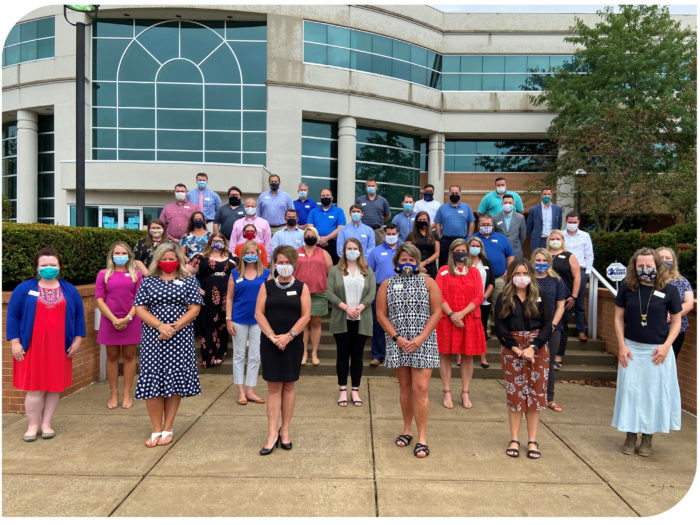
Access to capital is one of the biggest obstacles to small business and entrepreneurial growth in Appalachia. In 2013, with seed money from ARC and other partners, Appalachian Community Capital (ACC) was founded to increase business lending opportunities and new sources of capital via community loan funds and Regional Community Development Financial Institutions (CDFIs). As a lending intermediary, ACC raises capital for its 22 member Regional CDFIs. By growing the net capital base and program capacity of participating loan funds, these CDFIS are making it possible for Appalachian businesses and entrepreneurs to create high quality jobs, retain local wealth, and improve the quality of life in the Region.
In 2019, ACC received $1.5 million from ARC’s POWER Initiative to launch Opportunity Appalachia, a specific initiative assisting 16 local communities in developing investment proposals to attract additional capital into federally designated Opportunity Zones. This effort is anticipated to create over 1,800 jobs and bring $365 million in financing to develop manufacturing facilities, downtown areas, tech business, agricultural facilities, hotels, broadband, and retail enterprises in coal-impacted communities.
Emergency Business Response Assistance Program
In June 2020, ACC used ARC support to launch an Emergency Business Response Assistance Program in response to COVID-19. This program invested $3.5 million in redeployed ARC funds in 31 Regional CDFIs and other mission-driven community lenders, such as Revolving Loan Funds (RLFs), to cover operational costs and offset lost income from suspending, or reducing, borrower payments during the pandemic. Through this program, lenders are also providing operational support and direct technical assistance to Appalachian small business and non-profit borrowers. Since April 1, 2020, over 9,000 unique businesses or nonprofits have been served and are still in business, more than 40,000 jobs have been created or retained, and over $430 million has been leveraged in new or modified loans provided to borrowers.
Recipients of ACC’s emergency grants not only kept their own doors open, but provided the assistance needed to help thousands of businesses of Appalachian businesses do the same. One example is Bridgeway Capital. In 2017, Bridgeway Capital made a $170,00 loan to the nonprofit, Community Reel Arts Center. The loan supported the renovation of the Parkway Theater, a 45-seat large screen movie theater for viewing independent, foreign, and documentary films. The project is part of a mission to promote main street redevelopment in McKees Rocks, PA by adding cultural and economic vitality.



The COVID-19 pandemic required that the Theater completely shut down, which resulted in a sudden and long-lasting drop in revenue. Bridgeway was able to provide three loan modifications, each providing a three-month deferral period. Thus, in total, the borrower was provided a nine-month payment deferral period. Also, through revenue received from administering a Pennsylvania Statewide Grant Program, Bridgeway was able to forgive $15,012 of the borrower’s principal. The opportunity to offer these concessions was critical in supporting small businesses through the pandemic. Today, the Parkway Theater is reopened, screening films, and hosting comics thanks to the COVID-19-related grants Bridgeway received, including a $150,000 grant provided to Bridgeway from Appalachian Community Capital and made possible with ARC funding.
Here are a few more examples of businesses that were supported through ACC’s emergency grants and assistance:
- The ACE Women’s Business Center provided 85 webinars since the pandemic began, reaching 5,200 attendees who learned about accessing federal assistance, pivoting businesses, budgeting in unstable times, and more. ACE also led a Women-Owned Small Business Certification series helping women certify their businesses for more equitable access to federal contracting opportunities.
- Southeast Kentucky Economic Development Corporation provided over 1,400 hours of individualized technical assistance to clients.
- Alternatives Federal Credit Union held 544 one-on-one financial counseling sessions and 670 one-on-one business development appointments, 79% of which were with women and 44% with people of color.
- South Carolina Community Loan Fund’s Feeding Innovation program awarded a total of $45,000 in seed capital funding to three businesses to help increase access to healthy food. Participants attend an eight-week course in which they prepare a business plan for their project. They then participate in a “Pitch Night” for a $20,000 seed capital award.
- CommunityWorks closed over $3.7M in affordable housing lending in the ARC region between Greenville and Spartanburg, South Carolina.
- Kentucky Highlands Investment Corporation closed 72 loans totaling $11,011,776 to women-led businesses since the pandemic began in April 2020.
- Mountain BizWorks administered 114 grants totaling $475,000 in the “One Buncombe Fund”, which provided support for entrepreneurs in retaining and rehiring living wage jobs in Buncombe County. This program resulted in the retention of 252 living wage jobs.
- The Foundation for Appalachian Kentucky created and operated the Southeastern Kentucky Downtown Business Stimulus Fund, which provided 204 grants, ranging from $600-$3,000 totaling $753,284 to business owners in 32 EKY counties. These businesses represent a mix of restaurants, unique retail, entertainment, personal services, and others active in the broader downtown and tourism ecosystems. The Foundation’s Central Appalachian Family Farm Fund provided 140 grants, ranging from $500-$750 to farmers in 23 counties totaling $113,629.
“At a time when Appalachia—like the rest of the country– is addressing the challenges of both a health and economic crisis, I’m grateful to ARC for its continued leadership in supporting small businesses and community development finance lenders.” — Donna Gambrell, ACC President and CEO.
With ACC, businesses in Appalachia can not only keep their doors open, but thrive with greater opportunities and greater contributions to their community. Small businesses keep Appalachia strong.


